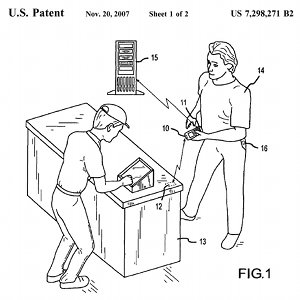 The US Government responded yesterday to the FISC’s order to conduct a declassification review in the Yahoo case. Their response asks for 45 and 60 days to complete the full review. They cite the need for interagency coordination, the volume and type of materials, and multiple FOIA requests in support of this request.
The US Government responded yesterday to the FISC’s order to conduct a declassification review in the Yahoo case. Their response asks for 45 and 60 days to complete the full review. They cite the need for interagency coordination, the volume and type of materials, and multiple FOIA requests in support of this request.
In the Microsoft and Google cases, the Government asked for a third extension of its deadline to respond to Microsoft’s motion. Microsoft and Google both consented to the extension.
In other news about the FISA Court, Reggie B. Walton, the presiding judge, responded to Sen. Patrick Leahy’s request for more information about the court processes and procedures. On July 18, Sen. Leahy requested this information in preparation for a Senate Judiciary Committee hearing on the implementation of FISA Authorities (scheduled for July 31).

 On November 30, Google was hit with yet
On November 30, Google was hit with yet  Massachusetts company Lexington Luminance LLC (“Lexington”)
Massachusetts company Lexington Luminance LLC (“Lexington”)  Yesterday, November 29, Brent Matthew Scott
Yesterday, November 29, Brent Matthew Scott  Yesterday, Google was named in a
Yesterday, Google was named in a  According to a new infringement lawsuit filed Tuesday in federal court (read it below), the
According to a new infringement lawsuit filed Tuesday in federal court (read it below), the  The European Union (EU) is expected to announce legal action against
The European Union (EU) is expected to announce legal action against  Here is a summary of legal developments in five federal and state court cases last week that involved technology companies, or alleged activities by their users.
Here is a summary of legal developments in five federal and state court cases last week that involved technology companies, or alleged activities by their users. On August 31, View 360 Solutions LLC, a subsidiary of Acacia Research Corp.,
On August 31, View 360 Solutions LLC, a subsidiary of Acacia Research Corp.,  During a recent trip to Washington, D.C., I discovered that the reflecting pool between the
During a recent trip to Washington, D.C., I discovered that the reflecting pool between the